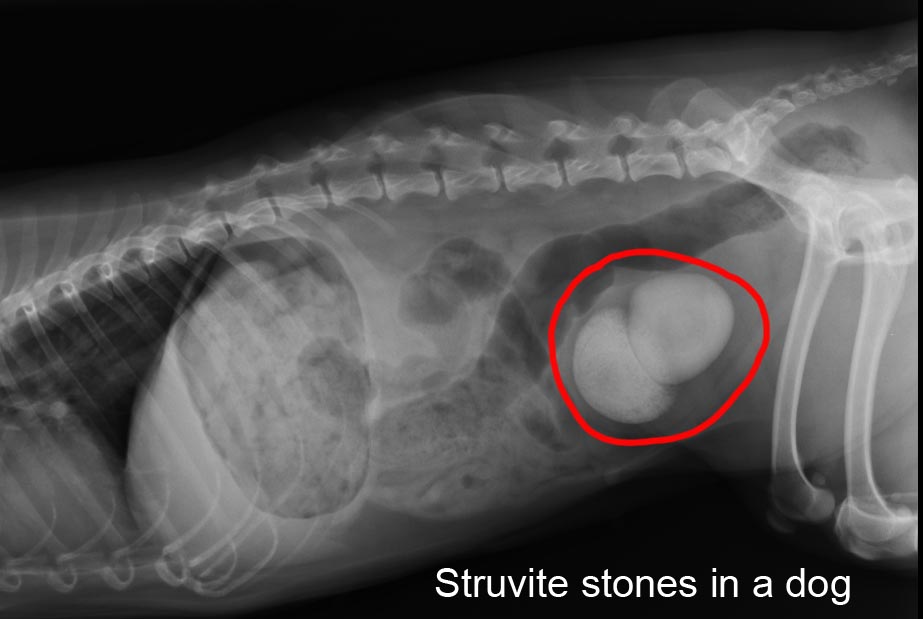Cystine uroliths also referred to as calculi are stones within the urinary tract composed of the amino acid cystine a breakdown product of proteins.
Cystine stones in dogs and neutering.
Urolithiasis cystine in dogs.
While bladder stones in general are somewhat common in dogs cystine bladder stones are rare.
Overview of cystine urolithiasis in dogs.
Your veterinarian may be able to palpate the stones or may need to perform imaging studies such as a bladder ultrasound or a contrast radiographic study.
This is significant as lifelong feeding of a commercial prescription diet or home prepared therapeutic diet is very expensive particularly in large breed dogs.
Urolithiasis is a medical term referring to the presence of crystals or stones in the urinary tract.
When the stones are made up of cystine a normal compound found in the body they are called cystine stones.
Neutering castration in these cases may prevent recurrence of cystine uroliths removing the need for lifelong medical management.
While bladder stones in general are somewhat common in dogs cystine bladder stones are rare.
Cystine bladder stones appear to be the result of a genetic abnormality that prevents a dog from reabsorbing cystine from the kidneys.










